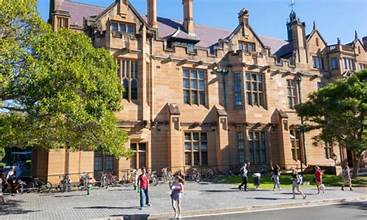Australia’s higher education system has long been a magnet for international students, particularly those seeking pathways to permanent residency and work rights. However, an increasing number of critics argue that many of these students are more focused on securing work opportunities in Australia than on their education itself. This has led to concerns about the decline in degree quality, especially within private vocational education and training (VET) institutions, where some providers offer low-value courses that attract students primarily for the student-migration pathway.
Decline in Degree Quality
The explosion in international student numbers has been linked to a decrease in academic standards across Australian universities. A recent interview with Chinese students revealed their perception that Australian university degrees are often seen as lower-quality compared to those from the United States and the United Kingdom. According to Melbourne University student Kepuyan Wu, Chinese students view Australian universities as the third most desirable option for higher education, after the US and UK. Wu added that if enrollment caps were implemented, Australian universities might regain some of their prestige by making access more competitive.
Perception of Australian Degrees
One of the key concerns raised by international students, particularly those from China, is the perceived lack of academic rigor in Australian degrees. Yuzhe Zhou, a student at Sydney University, highlighted that some employers in China refer to Australian degrees as “shui shuo,” or “water degrees,” implying they are easy to obtain but lack depth. As a result, some Chinese employers have been known to reject coursework-based master’s degrees from Australia, questioning their value compared to more rigorous programs in other countries.
Immigration Focus Over Education Quality
While the issue of academic quality continues to rise, the primary motivation for many South Asian students is immigration, not education. According to recent surveys, post-study work opportunities (52%) and pathways to permanent residency (43%) are the two most important factors when choosing a study destination. This trend has led to a dramatic increase in the number of students from South Asia in Australian universities. Australia continues to be the preferred study destination due to its work rights and residency options, but these factors may be undermining the integrity of the education system.
Proposed Reforms for Improving Quality
In response to these concerns, many experts argue that Australia should prioritize quality over quantity when it comes to international students. By raising financial barriers to entry, increasing entrance requirements (especially for English language proficiency and pre-admission testing), and eliminating practices like group assignments, Australia could attract a smaller pool of more genuine and high-quality students. These reforms would also help improve working conditions in lower-skilled jobs, raise export income per student, and alleviate population pressures.
Conclusion
Australia’s universities have shifted toward becoming degree mills, focusing on quantity rather than quality. To restore the credibility of the higher education system, the government must refocus on attracting top-tier international students and deliver academic excellence rather than mass enrollment.



